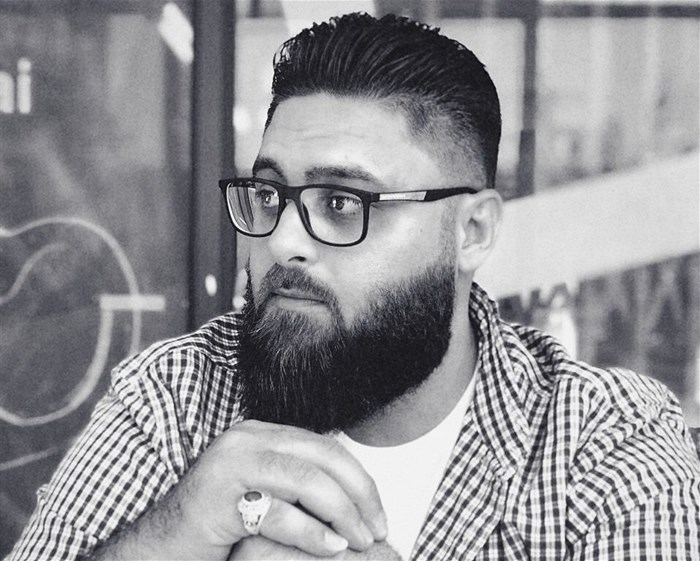
Having written, directed and produced projects like Aya, Nandi and Olivia, El-Jelailati has been selected to produce a micro-budget project for the National Film and Video Foundation and Netflix.
However, El-Jelailati feels that the filmmaking industry in South Africa faces a major issue of elitism and exclusion that creates a difficult barrier to break through as an upcoming filmmaker.
We spoke with him to find out how we can circumvent these issues, more about his work and some advice for young filmmakers looking to enter the field…
I was raised in a traditional Lebanese household. My father moved here from Lebanon to get away from the war and make a life for us. I'm obsessed with storytelling and the most important thing to me is family.
To be honest, I didn't have a clear path to filmmaking. But while I didn't grow up around it, I grew up around storytelling. In hindsight, I guess I've always been surrounded by storytelling and/or storytellers.
In the Lebanese community everyone is telling stories; when the men gather, the women when they get together, parents to their children - all our interactions are that of storytelling. And then there’s the Islamic influence which is based on the Quran and Hadith and those two elements are full of iconography and storytelling. I guess it was just seeping in the whole time - and now I tell stories through moving images.
I've been in this industry for almost 15 years now. I've had a lot of ups and downs, made a ton of mistakes, lost money, owe money and made money.
I think much of my career highlights are those small windows when you are able to see a glimmer of progress in yourself, in your craft and your place in the ecosystem of the industry. For me these include finishing my first feature film (Aya), working with great actors and even coming to terms with how much filmmaking means to me.
The culture ceiling is set on certain communities in this country. Most film-funding organisations cater to established film companies that have access to accounts departments, producers and creatives who can churn out a production file for as many funding submissions as they’d like.
They talk down to us as unestablished filmmakers. Many of us don't have access to resources – there aremore people out there who have to take a cab, to take a cab, to get into another cab, just to print out a document and submit it to one of these organisations. There’s no support or development, only condescension.
I like to look at it from a human perspective, I know there are political and socio-economic factors that play a role in the formation of the culture ceiling, however, for me, it’s a grassroots conversation.
If you don't know you have limitations placed on you, you can't work around them. My focus is to shift thinking and provide as much access as possible. You can only make the best decision if you are able to access all the information or at the very least, as much information as everyone else. For me, filmmaking is about being able to explore and debate on behalf of your community or yourself. You can't do that if you don't have access.
Indie. Indie, Indie, Indie!
Indie filmmaking is a meritocracy, based on a no excuses, results-based and solution-driven model. What we have in South Africa is a mandate film industry, led by a mandate model. The problem with that is that only a select few are allowed access to make films in that club.
What we need to fight to open up the form and incentivise young filmmakers to go out and develop their craft, explore their voices and learn to be self-sustaining. Learn not to take no for an answer, to find a different solution to a problem and cope outside of the system. Ultimately, by doing so, we will contribute to and benefit the industry, the economy and the form.
It’s important to me because it allows me access. As a filmmaker who doesn't come from a filmmaking background, family or a culture it taught me that I can go out and make a film with nothing and become a part of the conversation.
No one invited me, I crashed the party and I’m not leaving :).
What Indie does, is allow you to exercise and exorcise. Exercise the craft and exorcise your storytelling demons.
I don't have advice for becoming successful per se. My advice is for staying consistent, longevity is the goal, at least it is for me. I wanna be doing this until I die!
I have to be clear about my goals because there will come a time when one must answer some important questions; would/could I do this if I wasn't getting paid? Or if I wasn't going to be famous? Or could I make a small film in the garden with friends, just so I can tell a story? You must know why you’re doing this.
